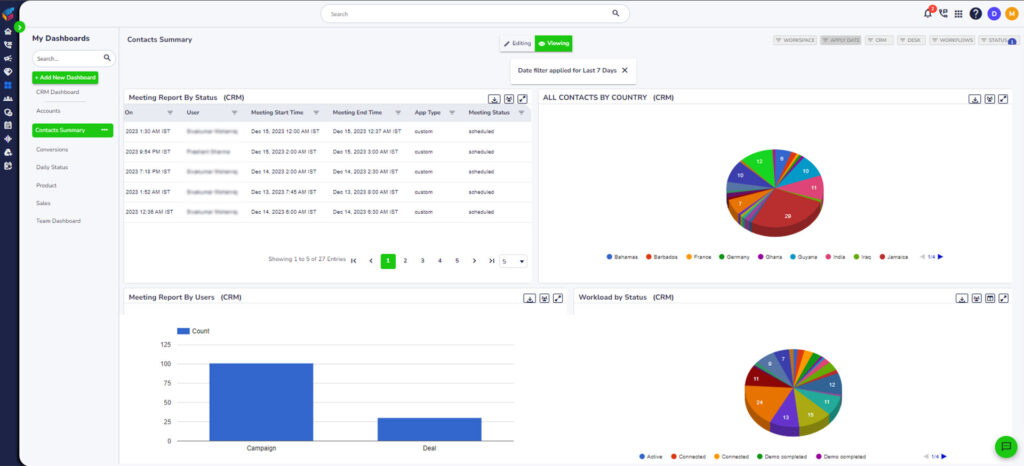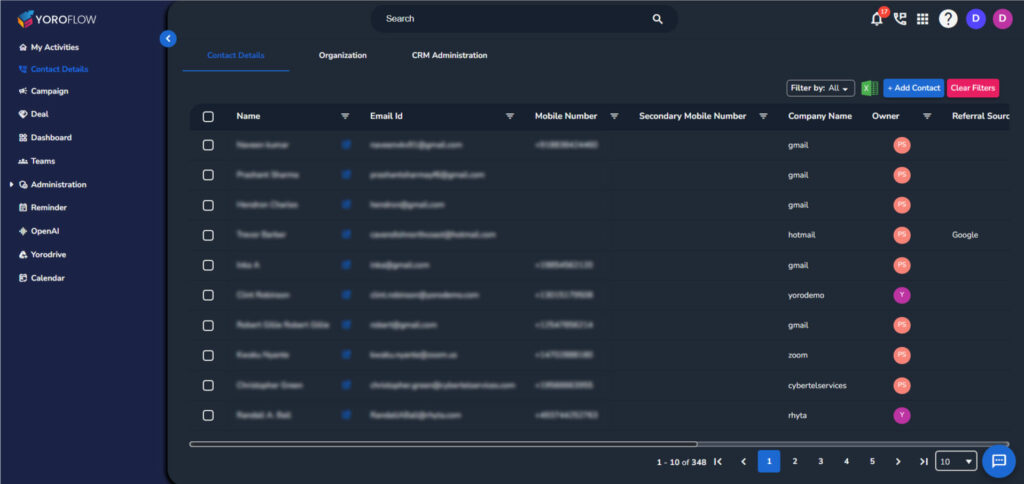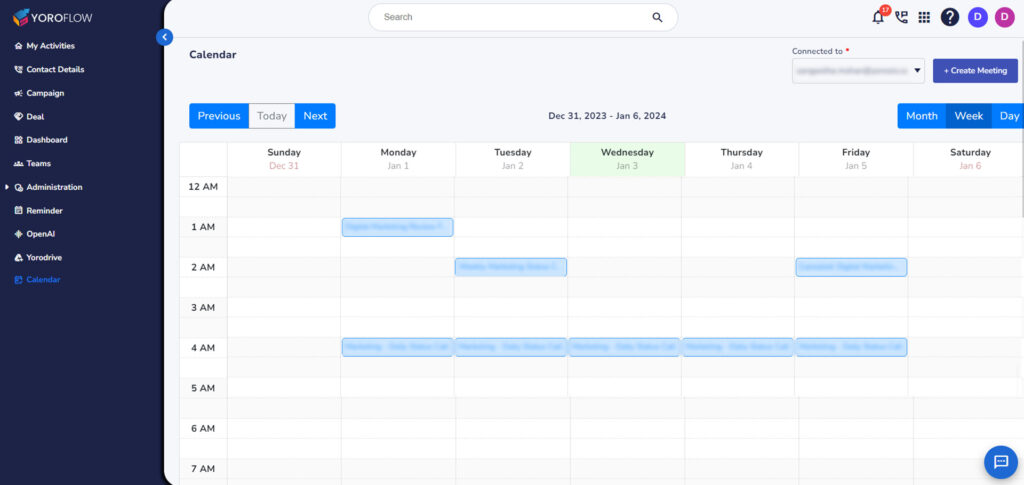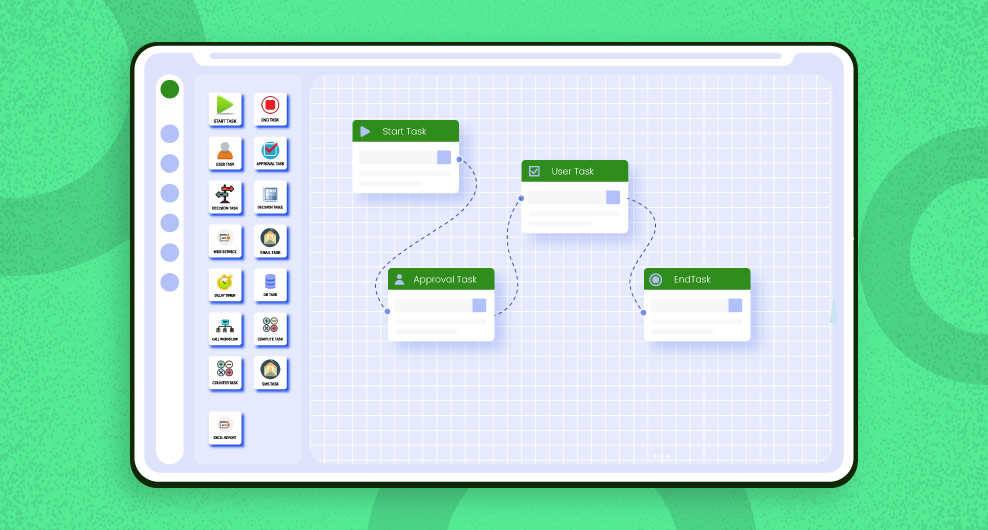Table of Contents
The role of a sales manager differs significantly from that of a sales representative. With the weighty tasks of increasing revenue, ensuring team targets are met, and managing a myriad of responsibilities, the question arises: How can one effectively handle these tasks, especially during the busiest quarter of the year? The solution lies in automation. However, the needs for sales automation vary between sales managers and representatives.
While sales representatives require automation software to streamline manual tasks, sales managers seek tools that provide actionable insights into sales—a task they routinely perform on a monthly or quarterly basis. Let’s explore some key responsibilities of a sales manager that can be effectively addressed with the assistance of sales automation software:
- Gain visibility into the entire sales process and sales activities.
- Accurately predict revenue.
- Break down silos within the sales team.
- Extract in-depth performance insights.
- Monitor individual and team performance.
These responsibilities can be automated without the need to sift through the entire sales database. Whether it’s presenting a visual representation of data or aiding in precise sales revenue predictions, here are some essential features to consider when selecting a sales automation platform.
Sales automation software for managers: 5 Features to look out for
In the dynamic realm of sales management, staying ahead of the game requires not just hard work but also smart tools. Sales automation software tailored for managers has emerged as a game-changer, offering a suite of features designed to streamline processes and enhance decision-making. If you’re a sales manager navigating the vast landscape of automation solutions, here are five key features to look out for:
Comprehensive Sales Process Visibility
Efficiency in sales management begins with a clear understanding of the entire sales process. Look for software that provides comprehensive visibility into every stage, from lead generation to deal closure. A user-friendly interface that allows you to track progress, identify bottlenecks, and optimize workflows is crucial. With a bird’s eye view of your team’s activities, you can make informed decisions to keep the sales pipeline flowing smoothly.
Accurate Revenue Prediction
One of the core responsibilities of a sales manager is forecasting and revenue planning. Choose automation software equipped with advanced analytics tools that go beyond basic predictions. Accurate revenue prediction features empower managers to make strategic decisions based on reliable projections, fostering proactive planning and goal setting.
Team Collaboration and Silo Breaking
Successful sales management hinges on effective collaboration within your team. Seek out software that goes beyond individual performance tracking and facilitates team collaboration. Features such as shared dashboards, real-time communication channels, and collaborative tools break down silos, promoting a culture of seamless teamwork that drives collective success.
In-Depth Performance Insights
The ability to delve deep into performance metrics is a game-changer for sales managers. Choose software that offers robust reporting and analytics, providing insights into both individual and team performance. By understanding the strengths, weaknesses, and areas for improvement, you can implement targeted strategies to elevate overall team effectiveness.

Automated Monitoring of Individual and Team Performance
Time is of the essence in sales, and manually tracking performance metrics can be time-consuming. Look for automation software that streamlines the monitoring process. Automated tracking of individual and team performance metrics ensures you stay well-informed about key indicators without the need for tedious data compilation, allowing you to focus on strategic decision-making.
What can a sales automation system do?
A sales automation system is a powerful tool that streamlines and automates various aspects of the sales process, ultimately enhancing efficiency, productivity, and overall sales performance. Here are some key functions and capabilities of a sales automation system:
- Lead Management: Sales automation systems help manage leads throughout the entire sales funnel. This includes lead capture, lead scoring, and automated lead nurturing through personalized communication. The system ensures that sales representatives focus on leads that are most likely to convert into customers.
- Contact Management: These systems maintain a centralized and organized database of customer and prospect information. This includes contact details, communication history, and any relevant notes, allowing sales teams to have a comprehensive view of their interactions with each contact.

- Email Automation: Sales automation systems often include email automation features. This involves sending out personalized and targeted emails at predefined intervals. Automated email campaigns can nurture leads, follow up with prospects, and even re-engage with existing customers.
- Task and Calendar Management: Sales representatives can schedule and automate tasks such as follow-ups, appointments, and calls. Integrated calendars ensure that salespeople stay organized, never missing an important meeting or deadline.

- Workflow Automation: Workflow automation is a key feature that helps in automating repetitive tasks and processes. This includes data entry, document generation, and other routine activities, allowing sales teams to focus on more strategic and value-added tasks.
- Pipeline Management: Sales automation systems provide a visual representation of the sales pipeline. This allows sales managers and representatives to track deals at various stages, identify potential bottlenecks, and make informed decisions to move deals forward.
- Analytics and Reporting: Robust analytics tools generate reports on various sales metrics and KPIs. This includes tracking individual and team performance, analyzing conversion rates, and identifying trends. These insights enable data-driven decision-making and strategy refinement.
- Quoting and Proposal Automation: Some systems facilitate the creation of quotes and proposals. Sales representatives can generate professional and accurate quotes, ensuring consistency and reducing the time it takes to create and send proposals to prospects.
- Integration with Other Tools: Sales automation systems often integrate with other tools and platforms, such as customer relationship management (CRM) software, marketing automation tools, and communication platforms. This ensures a seamless flow of information across different departments.
- Customer Retention and Upselling: Beyond acquiring new customers, sales automation systems can also be used to nurture existing customer relationships. This includes automated communication to gather feedback, offer post-sale support, and identify opportunities for upselling or cross-selling.
A sales automation system is a comprehensive solution designed to optimize and automate various aspects of the sales process, enabling sales teams to work more efficiently, close deals faster, and build stronger customer relationships.
In conclusion, as a sales manager, the right sales automation software can be your secret weapon for achieving and exceeding targets. By selecting a solution with these five key features, you empower yourself to lead with precision, optimize team performance, and drive success in the fast-paced world of sales management. Embrace the future of sales with automation, and watch your team soar to new heights.
Considering which sales automation software to opt for? Give YoroCRM a try and experience the distinction.




